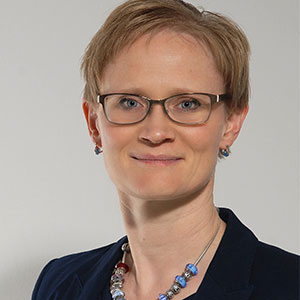Dr Kirsten Bönker

IAS Open Programme: Sino-Soviet Rivalry in Africa during the Cold War
University of Cologne Department of East European History
Kirsten Bönker is currently an Associate Professor (Akademische Oberrätin) of East European History at the University of Cologne. Before, Kirsten was visiting professor at the Universities of Bielefeld, Oldenburg, Göttingen, and Notre Dame. Her research focuses on late Imperial and Soviet History. Her first book “Jenseits der Metropolen. Öffentlichkeit und Lokalpolitik im Gouvernement Saratov (1890-1914)” focuses on local politics, the contested public sphere and the formation of civil society in late Imperial Russia. Kirsten’s second book “Television and Political Communication in the Late Soviet Union” analyses the impact of Soviet television on political communication, leisure, and material culture on the basis of archival materials and oral history interviews covering habits of watching TV in the late Soviet Union.
Her current research projects address the interconnected history of the Cold War. The first book project is called “’Russia is no Riddle’ – Western correspondents in Moscow during the Cold War”. It explores the way West German, French, and American journalists acted as intermediate agents in the Cold War competition of the superpowers. The second book project investigates the town twinning between Hamburg and Leningrad in the Cold War. In a cultural-historical perspective, it illuminates a translocal history of interconnections, rapprochements and transfers during the Cold War. The third project delves into the rise of Soviet interconnectedness with the World by creating convergence zones with African actors in the context of African-Soviet friendship societies, of trade relations, and economic aid.
Kirsten’s latest publication is „Auslandskorrespondenten im Kalten Krieg: Akteure der Détente?, in: Gleb J. Albert, Daniel Siemens, Frank Wolff (eds.), Entbehrung und Erfüllung: Praktiken von Arbeit, Körper und Konsum in der Geschichte moderner Gesellschaften, Bonn 2021, pp. 171-195.“